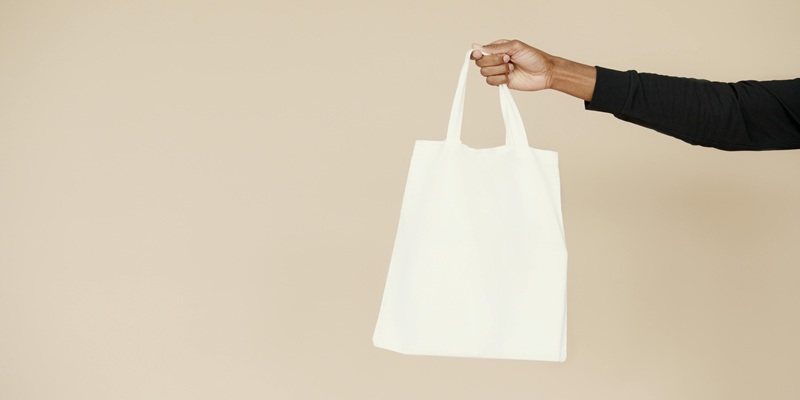The fashion industry, once synonymous with fast-paced trends and environmental neglect, is undergoing a significant transformation. Increasingly, consumers are becoming more aware of how their clothing choices affect the planet and the people who make them. As a result, sustainable fashion brands are gaining traction. These ethical clothing lines prioritize transparency, environmental responsibility, and fair labor practices, reshaping the industry in a meaningful way.
Understanding the Rise of Sustainable Fashion and Ethical Clothing Lines
Sustainability has emerged as a buzzword across various industries. However, within fashion, it holds a deeper, more urgent significance. Traditional clothing production is one of the most polluting industries globally. It consumes vast amounts of water, emits greenhouse gases, and generates enormous waste. Additionally, fast fashion often relies on exploitative labor practices.
Sustainable fashion brands aim to change this narrative. They adopt a holistic approach, focusing on the full lifecycle of a garment—from sourcing materials and production to packaging and post-consumer recycling. Moreover, they prioritize ethical labor standards, ensuring workers are paid fairly and operate in safe environments.
The growing awareness among consumers is propelling this shift. People are no longer satisfied with simply looking good; they want to feel good about what they wear. This evolving mindset is at the heart of the ethical fashion movement.
What Defines a Truly Ethical and Sustainable Fashion Brand?
Not all fashion brands that label themselves as “sustainable” or “ethical” live up to those claims. Therefore, it’s essential to understand the core principles that define genuine ethical clothing lines.
Eco-Friendly Materials and Low-Impact Production
Sustainable fashion brands prioritize materials like organic cotton, hemp, Tencel, and recycled fabrics. These materials require fewer resources and have a lower environmental impact than conventional textiles.
For instance, organic cotton is grown without harmful pesticides or synthetic fertilizers, thereby protecting soil health and water sources. Brands also strive to reduce water usage, energy consumption, and waste during manufacturing.
Fair Trade and Ethical Labor Practices
A hallmark of ethical fashion is its commitment to fair wages and humane working conditions. Ethical brands often partner with certified factories or cooperatives that adhere to strict labor standards. These practices ensure that garment workers—especially in developing countries—are treated with respect and dignity.
Transparency and Accountability
Transparency is crucial. Consumers want to know where their clothes come from and how they were made. Reputable sustainable fashion brands openly share information about their supply chains, sourcing methods, and sustainability goals. Some even publish annual impact reports to keep customers informed and accountable.
Minimal Waste and Circular Fashion Models
Circular fashion aims to keep products in use for as long as possible. This includes designing clothes that are durable, repairable, and recyclable. Some brands also offer take-back programs, allowing customers to return used garments for reuse or recycling.
Why Supporting Ethical Clothing Lines Matters Now More Than Ever
The environmental and social impacts of the fashion industry are staggering. Every year, over 92 million tons of textile waste end up in landfills. Furthermore, the industry is responsible for nearly 10% of global carbon emissions.
By choosing sustainable fashion brands, consumers help reduce these harmful effects. The shift toward ethical clothing lines promotes environmental stewardship and social justice. Additionally, it encourages innovation within the fashion industry, pushing major brands to reconsider their practices.
Furthermore, sustainable fashion is not just a passing trend—it’s a long-term solution. It aligns with the broader global goals of combating climate change, reducing inequality, and promoting responsible consumption and production.
Top Sustainable Fashion Brands Leading the Ethical Revolution
Several brands are making a name for themselves through their strong commitment to ethical fashion. Below are a few that stand out:
Patagonia
Patagonia is one of the pioneers of sustainable fashion. The brand uses recycled materials and organic cotton in its collections. It also donates a percentage of its profits to environmental causes. Importantly, Patagonia practices radical transparency and holds its supply chain to high ethical standards.
People Tree
This UK-based brand has been a leader in Fair Trade fashion for over 30 years. People Tree uses sustainable materials and works directly with artisans and farmers in developing countries. Their collections are stylish, comfortable, and socially conscious.
Reformation
Reformation is known for its chic and feminine designs. Beyond style, the brand takes sustainability seriously. It calculates the environmental footprint of each product and openly shares this data with consumers. Reformation also emphasizes carbon neutrality and eco-friendly packaging.
Eileen Fisher
Eileen Fisher combines simplicity with sustainability. The brand uses natural dyes, organic materials, and a take-back program called “Renew,” where worn garments are refurbished or recycled. The company also supports women-owned businesses and promotes social entrepreneurship.
tentree
As the name suggests, tentree plants ten trees for every item sold. The brand creates casual, comfortable clothing from sustainable materials such as Tencel, organic cotton, and recycled polyester. Their mission is deeply rooted in environmental conservation.
How Consumers Can Support the Movement Toward Ethical Fashion
Supporting sustainable fashion doesn’t mean replacing your entire wardrobe overnight. Rather, it’s about making intentional, informed decisions. Here’s how you can contribute:
- Buy less, choose well: Invest in high-quality pieces that last longer.
- Support ethical brands: Look for certifications like Fair Trade, GOTS, or B Corp.
- Educate yourself: Read labels and research brand practices.
- Reuse and recycle: Donate, swap, or upcycle your old clothes.
- Care for your garments: Proper maintenance extends the life of your clothing.
Each small decision adds up. Over time, conscious consumption can create a ripple effect that leads to systemic change.
Challenges in the Ethical Fashion Industry and How Brands Are Adapting
While the movement is growing, ethical fashion still faces challenges. Sustainable materials can be expensive, making it difficult for some brands to compete with fast fashion on price. Additionally, supply chain transparency is complex, especially for small brands with limited resources.
However, many companies are innovating. For example, blockchain technology is being used to verify supply chains, and digital fashion passports help track the lifecycle of garments. Moreover, collaboration among brands, NGOs, and governments is paving the way for more standardized and impactful practices.
Conclusion
The Transformation sustainable fashion is not just a positive trend—it’s a necessity. Ethical clothing lines are challenging the status quo, offering alternatives that respect people and the planet. By supporting these brands, consumers play an active role in shaping a more sustainable future.
Indeed, the road ahead may not be without obstacles. Yet, the growing demand for transparency, responsibility, and purpose-driven fashion signals a hopeful transformation. As more individuals embrace these values, the fashion industry will continue to evolve—one conscious choice at a time.































